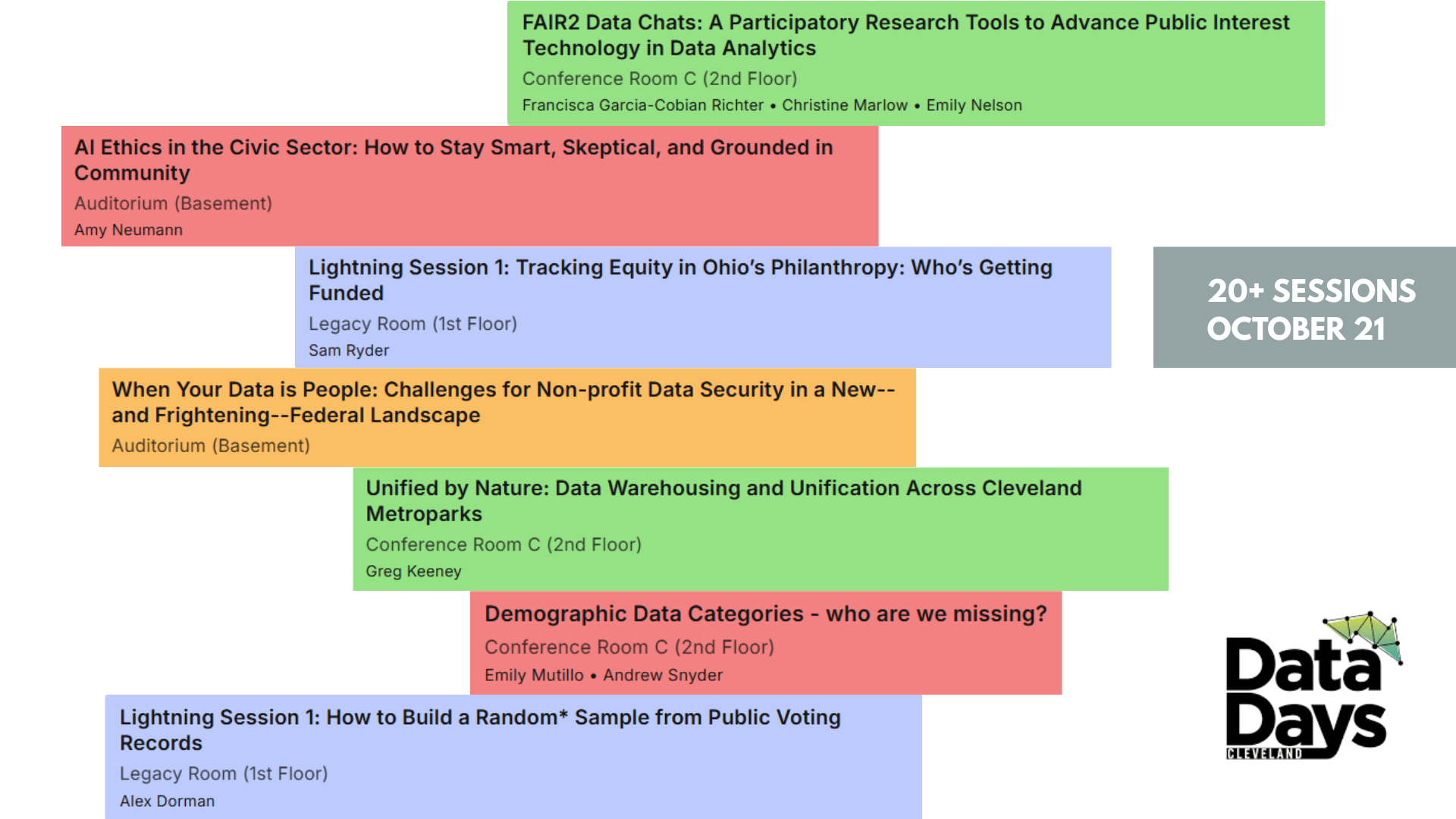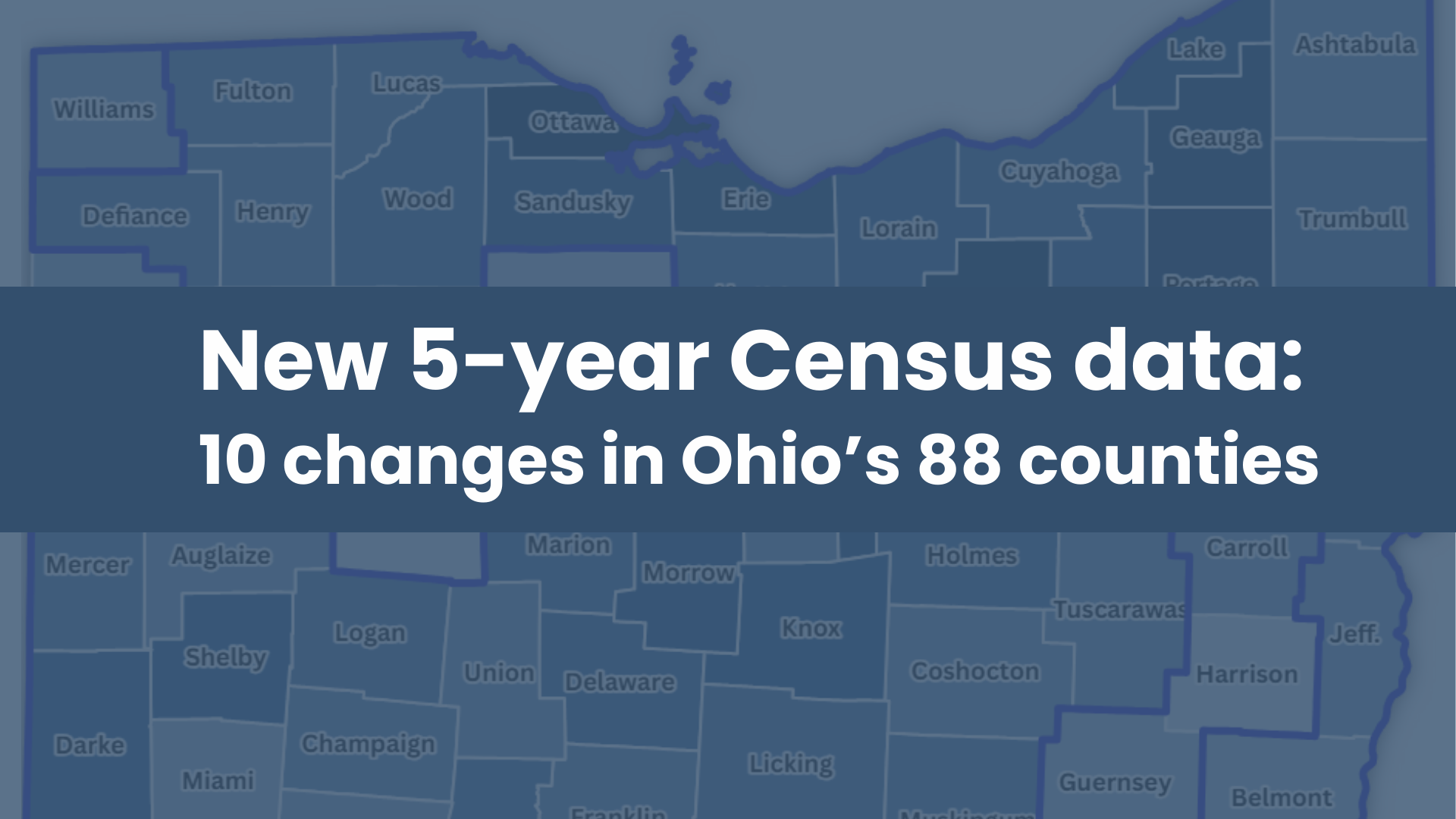Data Days Cleveland is back for another year and the conference day is soon approaching. The annual event consists of a workshop day, which will take place next week, and a conference day, held this year on October 21. The workshop day has sold out so make sure to get your conference day tickets soon!
Sessions for all levels of data expertise
The all-day conference creates space for Northeast Ohio civic data and tech enthusiasts to share information, learn, and build community. There will be sessions for people new to working with data, experienced data professionals, and sessions with a focus on building connections and community. Session topics cover a wide array of issues including using data to address Cleveland’s vacant land, how data can inform housing policy, AI ethics in the civic sector, a deep dive into 211 and 311 data, challenges for non-profit data security in the current federal environment, and more.
Host or join and Unconference conversation
During lunch, Data Days facilitates an “Unconference,” where attendees can engage in conversations important to them and their work. Anyone can host a conversation, and they are meant to participatory. When you register, you can propose a conversation and/or mark which conversations you would be interested in joining.
I attended Data Days for the first time last year and was beyond impressed. I left feeling inspired, more knowledgeable, and with a feeling of increased connection to others looking to improve their communities in Northeast Ohio. If you are interested in using data for civic engagement, want to learn a new skill, or looking to meet people with similar interests in your field, this is the place. The sessions are bound to be illuminating, and you’ll have plenty of time to meet others during breakfast, lunch/Unconference, and a happy hour at Butcher and the Brewer after the conference.
Community Solutions is proud to be fiscal sponsor for the second year in a row.
Check out these sessions from Community Solutions staff at the conference
“How to Build a Random* Sample from Public Voting Records”
Alex Dorman, Research Fellow
The value and difficulty of identifying a random research sample is well known. This lightening session will provide a very practical overview of how to use Ohio voting records to build a "random" mailing sample for your research, as well as discuss the shortcomings of this method.
“Demographic Data Categories – who are we missing?”
Emily Muttillo and Andrew Snyder
This session will explore the demographic categories common in data collection as well as the impacts of limiting options or not collecting certain categories. For instance, Sexual Orientation and Gender Identity (SOGI) demographics and Race/Ethnicity are not always representative of the full spectrum of options. Do people see themselves in the data researchers collect? What does it mean for how we identify communities?
“How public sector data can better support immigrant and multilingual communities”
Ronald Rodriguez Jr., Policy Ambassador of Community Solutions
Public data systems affect all of us every day, including immigrants. What happens when the data doesn't speak your language? Greater Cleveland is home to dozens of immigrant communities and hundreds of thousands of people who speak languages other than English at home, according to Census estimates. Are data geeks serving them? Panelists from local multilingual publications and organizations that serve immigrant communities will talk about problems their communities have accessing and interacting with data; how data systems could work better for them; and what solutions are working.










